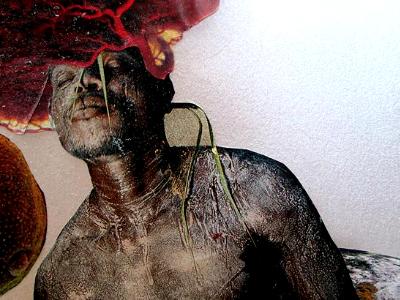 "It should be possible to design a world in which behavior likely to be punished seldom or never occurs. We try to design such a world for those who cannot solve the problems of punishment for themselves, such as babies, retardates and psychotics, and if it could be done for everyone, much time and energy would be saved..." -B.F. Skinner, Beyond Freedom and Dignity, 1971, page 66. "And that," put in the Director sententiously, "that is the secret of happiness and virtue--liking what you've got to do. All conditioning aims at that: making people like their unescapable social destiny" -Aldous Huxley, Brave New World, 1932, page 13."There is no subjugation so perfect as that which keeps the appearance of freedom, for in that way one captures volition itself." -Jean-Jacques Rousseau, Emile
"The experience of the Holocaust brings into relief, however, another social mechanism; one with a much more sinister potential of involving in the the perpetration of the genocide a much wider number of people who never in the process face consciously either difficult moral choices or the need to stifle inner resistence of conscience. The struggle over moral issues never takes place, as the moral aspects of actions are not immediately obvious or are deliberately prevented from discovery and discussion. In other words, the moral character of action is either invisible or purposefully concealed.To quote Hilberg again, 'It must be kept in mind that most of the participants [of genocide] did not fire rifles at Jewish children or pour gas into gas chambers...Most bureaucrats composed memoranda, drew up blueprints, talked on the telephone, and participated in conferences. They could destroy a whole people by sitting at their desk.'..The increase in the physical and/or psychic distance between the act and its consequences achieves more than the suspension of moral inhibition; it quashes the moral significance of the act and thereby pre-empts all conflict between personal standard of moral decency and immorality of the social consequences of the act. With most of the socially significant actions mediated by a long chain of complex causal and functional dependencies, moral dilemmas recede from sight, while the occasions for more scrutiny and conscious moral choice become increasingly rare." -Zygmunt Bauman, Social production of moral invisibility; Modernity and the Holocaust, 1989, page 24-25.Scholars speak of ‘informatization of the body’ to point out the digitalization of physical and behavioral attributes of a person and their distribution across the global information network.
According to a popular aphorism, biometrics are turning the human body into a passport or a password. As usual, aphorisms say more than they intend. Taking the dictum seriously, we would be two: our self and our body. Who are we, if we are not our body? And what is our body without us? Briefly, at the core of the notion of ‘informatization of the body’ there is a concern for the ways in which digitalization of physical features may affect the representation of ourselves and may produce processes of ‘disembodiment’. While privacy advocates and civil liberty organizations are concerned with the risk of function creep, philosophers are often concerned with informatization of the body, because it would touch our inner nature, the ‘human essence’.
Biometric systems digitalize physical appearances and behaviors in order to process them. The passage from analogical to digital representations is not a trivial one, because digital representations always imply a certain degree of simplification, which modifies the nature of the represented object. By digitalizing representations of body parts and behaviors, biometric technologies tends to remove from them all dimensions but those which are relevant to recognition. Ideally, biometrics aims to turn persons into mere living objects, which can be measured and matched with similar living objects.
The Italian philosopher Giorgio Agamben has argued that there are times when rulers create indistinct zones between human life and bare life. Agamben, following Carl Schmitt and Walter Benjamin, calls these times ‘states of exception’. In states of exception, humans are stripped of all meanings except the fact they have life, and that life, like the life of an animal, can be taken at any point without it being considered murder, as happened in the concentration camps.
The tattooing of concentration camp victims was rationalized as ‘the most normal and economic’ means of regulating large numbers of people. With this logic of utility applied during a similar state of exception in the United States today, the US-Visit’s bio-political tattooing enters a territory which ‘could well be the precursor to what we will be asked to accept later as the normal identity registration of a good citizen in the state’s gears and mechanisms’.
Agamben envisages the reduction to bare bodies for the whole humanity. For him, a new bio-political relationship between citizens and the state is turning citizens into pure biological life; and biometrics herald this new world. |